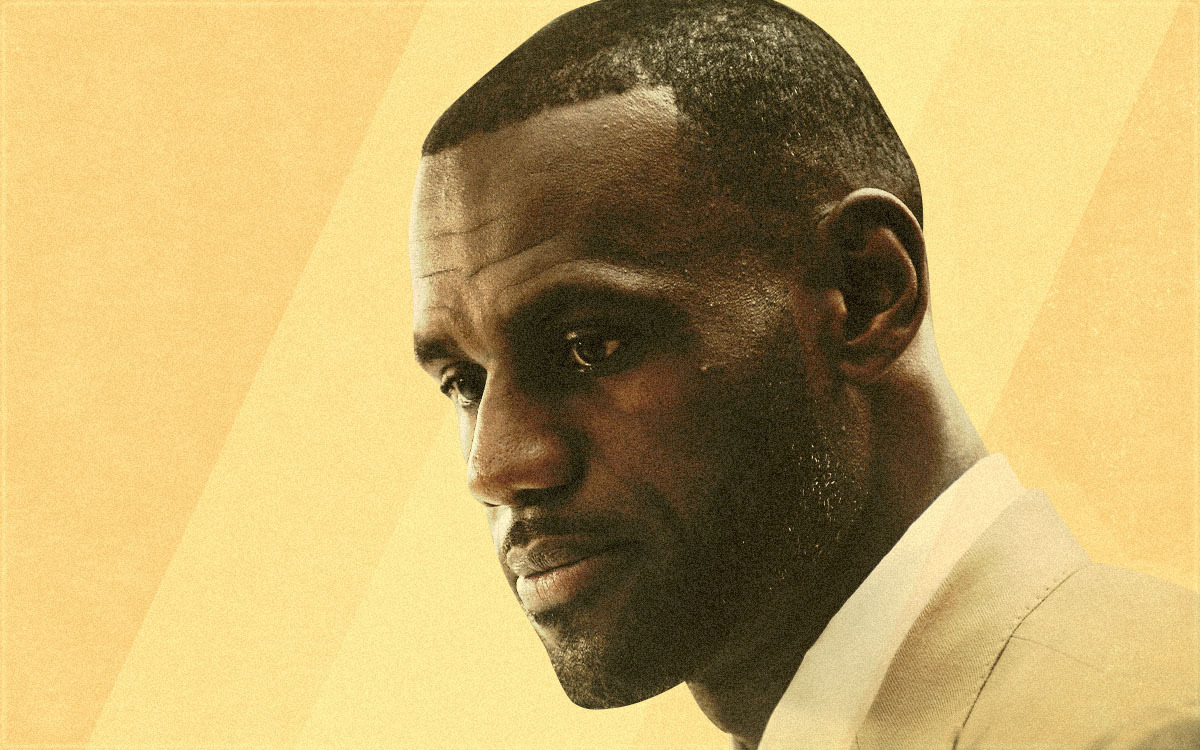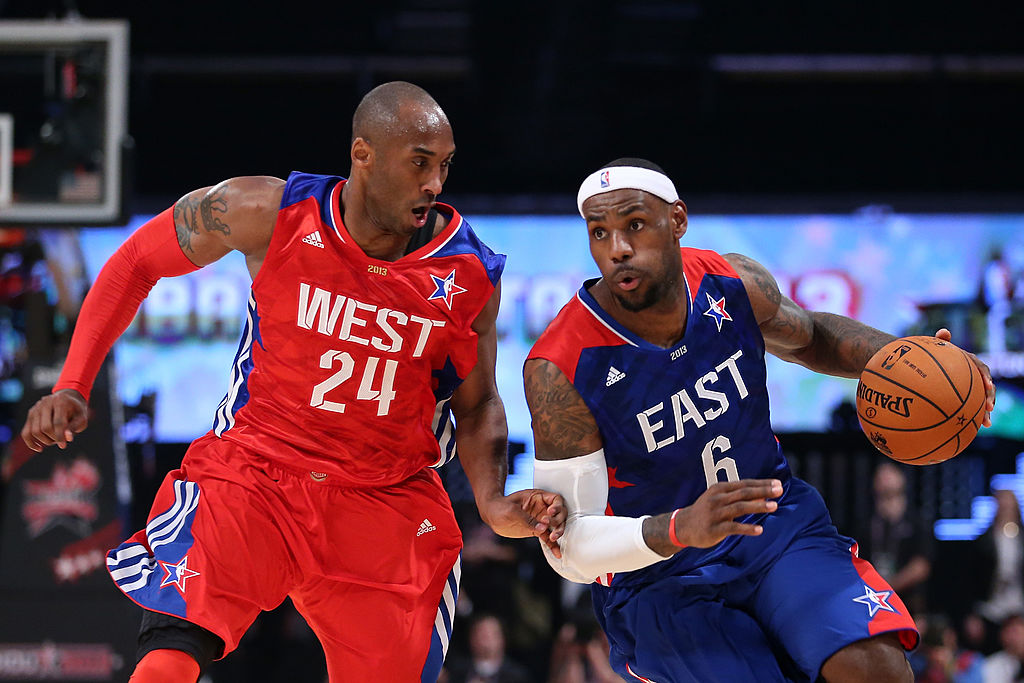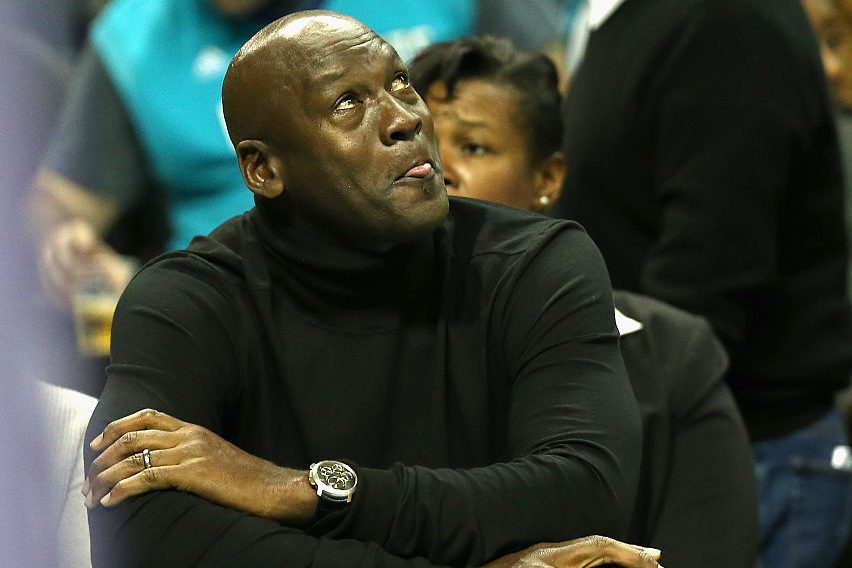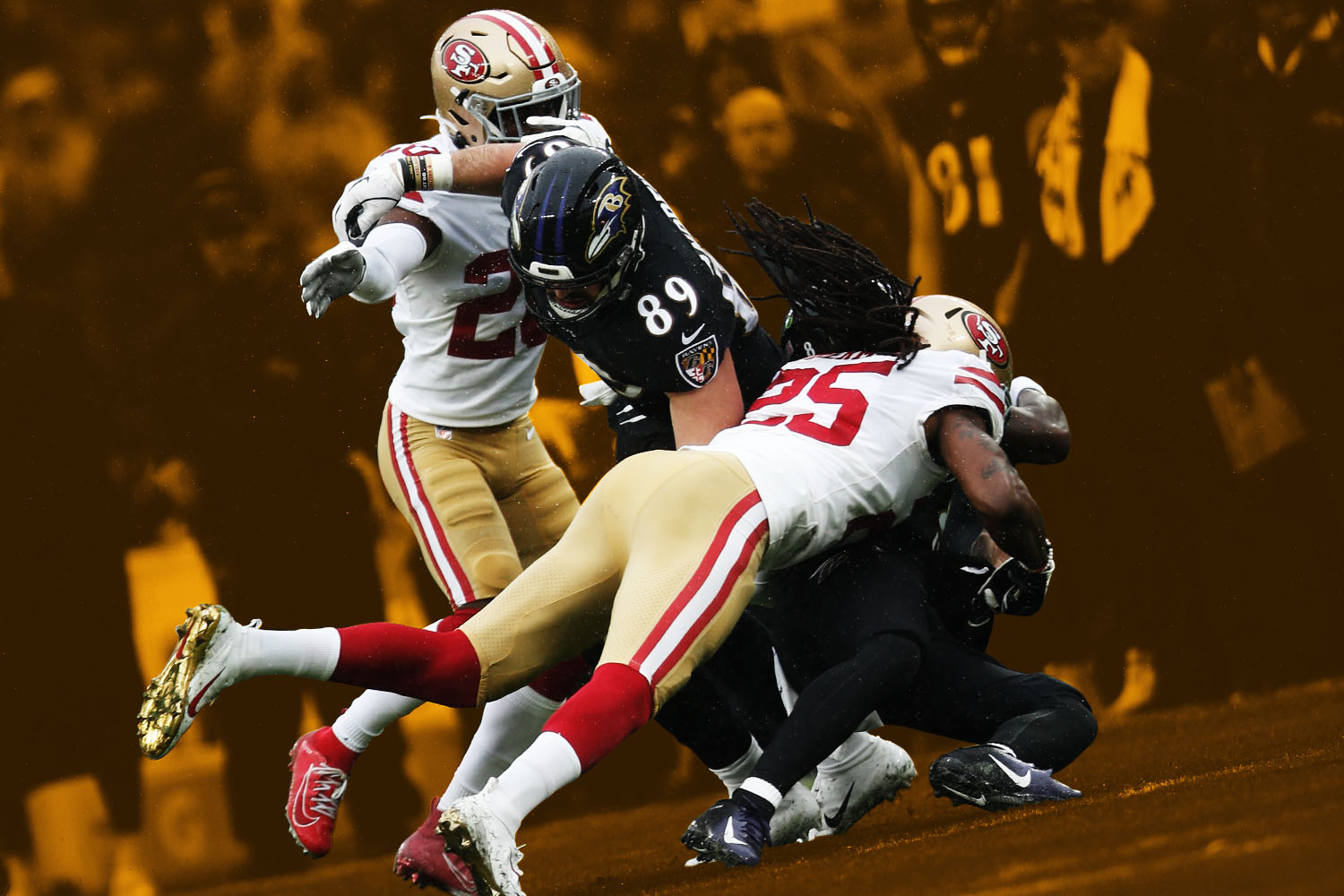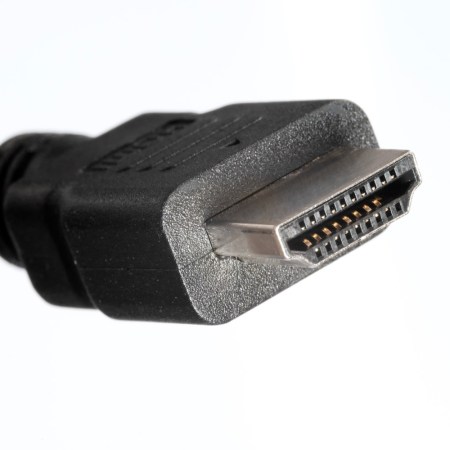Last week, ESPN asked a poll of 600 NBA fans to name their preference for Michael Jordan or LeBron James across 17 different categories, ranging from “Better player overall” to who they’d rather “Have a drink with.” Jordan swept every single question, commandingly, with some of the largest disparities reported in “Better sneaker for fashion” (79% for Jordan), “Pick for game-winning shot” (76%) and “Spectacular to watch play” (74%). When ESPN published the results, its headline included the phrase “Michael Jordan Better Than LeBron James in Every Way.”
There’s a 10-episode chunk of recency bias at play here, but even before The Last Dance and the avalanche of thirsty Jordan takes that followed, one can’t help but feel like King James is destined for the proverbial shaft any time someone mentions his name next to Jordan’s.
Consider some of the poll’s more dubious pro-Jordan takes: according to respondents, Jordan was not only A) a better passer than LeBron (59%), but also B) could be trusted to pass the ball more (57%). Are voters not aware that over his career, James is a more effective passer than Michael Jordan by a full 2.1 assists per game, or that, at 35 years old, he was leading the NBA with 10.6 dimes a contest before the season was cut short?
Jordan even brought home the category “Positive impact off court,” with 62% of the vote. A puzzling proposition, considering the fact that LeBron spends most of his downtime doing things like donating $2.5 million to fund a Muhammad Ali Exhibit and launching a worldwide “More Than an Athlete” tour to help promote activism by professional athletes. While you were busy watching Michael embellish his own myths on ESPN, LeBron quietly released a series of his own on Quibi: I PROMISE, which documents daily life at the multi-million-dollar public school in Akron, Ohio, that he funded out of his own pocket (and where students are currently performing in the 99th growth percentile for test-score improvement). The night before this ESPN poll dropped, in fact, LeBron was the host of Graduate Together, one of those every-channel goodwill specials that only comes along during times of crisis. He cheered the Class of 2020 on, and asked them to “stay close to home” as they grow, no matter how sick of it they may be right now.
And yet, if ESPN had asked “More likely to have a son named LeBron James, Jr.,” it’s reasonable to imagine Jordan sneaking by with a 51% victory.
In aggregate, these responses serve as a reminder of a larger, longer-held bias against LeBron, both on — and more importantly, off — the basketball court. Stats, longevity, freakish feats of athleticism, being a good father, building better communities … no matter how much evidence he brings to the table, there are certain circles in which LeBron simply can’t win.
Why?
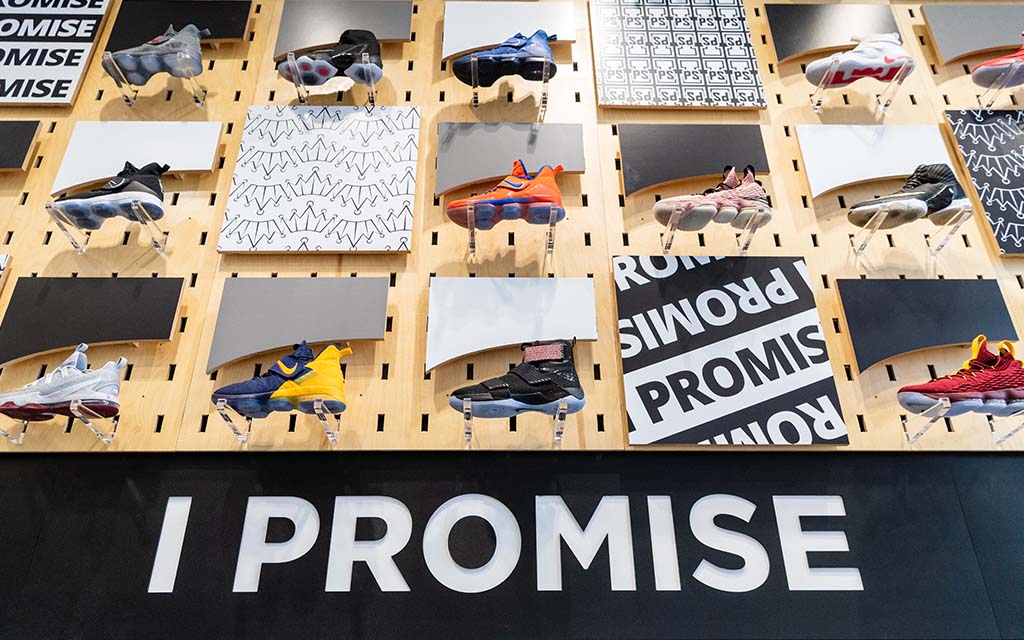
The basketball-consuming public’s relationship with LeBron is near-political in both its dinner-ruining fervor and tired, bipartisan structure. There are zealots on both sides of the debate: those for whom his losing record in Finals record (3-6) will forever be a scarlet letter, and those for whom his 3-1 comeback against a historically good team represents one of the greatest achievements in modern sports. The former camp is populated largely by Jordan purists, but that isn’t exactly a prerequisite: maybe you think basketball peaked with the Dream Team; maybe you long for a brand of basketball that looked more like football; maybe you’re from the Bay; maybe you’re Paul Pierce. The latter group, meanwhile, is aware that LeBron has lost the NBA Finals many times, but realizes that maybe counting rings isn’t the best way to assess the value of an individual in a team sport. They liken his time in Miami to the four-year college stint he never had; they consider the Warriors’ death lineup superior by a wide margin to any opponent Jordan’s Bulls ever faced; they extoll his ability to facilitate and to defend; they remember The Block; they are Iman Shumpert.
People make their points, these points, over and over. Older players and fans will always bring up the difficulty of arguing eras, or reminisce over a bygone, more violent style of play. Younger parties — even those who don’t serve the court of LeBron — will then fire back, citing the perpetual evolution of athletes thanks to improved training methods and technologies (LeBron reportedly spends $1.5M a year to keep his body in peak condition; Jordan, uh, didn’t).
The real legacy of The Last Dance might be this: its fanning of the interminable GOAT debate’s flames. Jordan apparently OK’d the 1997-1998 footage’s development into a documentary back in June of 2016, a month after LeBron completed his conquest of the 73-win Warriors. That timing can’t be an accident, and one reading of the documentary suggests an attempt by Jordan to send a clear message, straight from the ’90s and through to the present day: greatness means fabricating grudges, punching teammates and sublimating everything in life into the pursuit of victory. Being the best doesn’t just permit one to be an asshole — it requires it. And while LeBron James is a lot of things — champion, father, benefactor, diplomat, activist, entrepreneur — an asshole he is not.
I should clarify, immediately, that I’m not saying Michael Jordan is a bad person. His Airness has been philanthropic throughout his life, and especially in recent years: from 2015 to 2019 he donated $30 million to the National Museum of African American History and Culture, Make-A-Wish, Chicago-area-charities and hurricane relief, and most within his inner circle have reported him to be a generous and empathetic person. (Consider Gus Lett, the security guard who became a surrogate father to Jordan during his playing career; when Lett battled cancer, Jordan quietly paid all of his medical bills.) But that’s not what Jordan explicitly chose to enshrine with the release of The Last Dance. His “aura” — and the win-at-all-costs mentality that preceded it — is.
This penchant for confrontation helped spawn an entire generation of cantankerous competitors that followed in Jordan’s footsteps: Tiger, Kobe, Lance, Brady — all men whom we herald as capital-W Winners, and every single one of them inseparable from their reputation as confrontational jerks. Notably, this mentality does not conjure images of LeBron. LeBron is built like Zeus and earned his place in basketball’s Mount Olympus a long time ago, but he is also disarmingly human. He likes to post videos of #TacoTuesday from his kitchen, flanked by his high-school sweetheart and three children. He sings in the car, terribly. He hosts an HBO talk show called The Shop where musicians, actors and fellow players talk about politics and mental-health awareness. He called President Trump a bum when the White House told the Warriors they weren’t welcome. He believes NCAA athletes should be allowed to pursue compensation. In fact, LeBron is so active on social media that when he turns it off for playoff runs, his months-long absence is reported on by the media.
Of course, social media alone is not the differentiator here. Tiger has an Instagram and Kobe was all over social media before he passed away earlier in the year; in neither case did that accessibility prevent fans from regarding them as obsessive, unassailable assassins. LeBron’s at-times all-over-the-place embrace of his role in building a legacy beyond the court, meanwhile, can leave America at a loss. Why is he worried about running a public school in Akron when he ought to be busy enough chasing his self-proclaimed “ghost” (Jordan)? How can he expect to be taken seriously when he maintains close friendships with so many of his rivals (Carmelo, Chris Paul, D-Wade)?
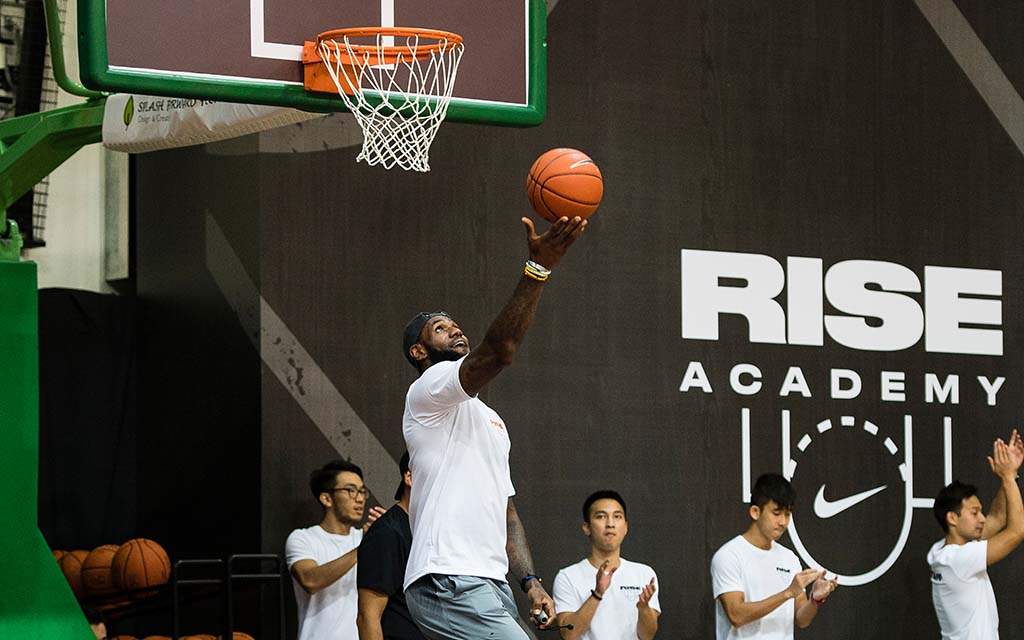
Observers have done their best to make sense of success that does arrive with compromise, that hints at a life beyond the hardwood, but they tend to dwell on shortcomings whenever they arrive: the fourth-quarter breakdowns, the passive final possessions, the press-conference malaise, The Decision. That LeBron has never attacked medical officials over a PED scandal, been caught cheating on his wife or stood trial for rape isn’t any help to him — in fact, perversely, it has probably hurt him. Most great “redemption” stories are, by definition, catalyzed by mistakes made in the human arena; an arc that begins and ends entirely on the court or field makes for a far less interesting post mortem.
What is a ring worth, then? Is it worth more than a foundation, a school, a point of view? America seems to think so. In some ways, the Jordan-LeBron debate is broken at its foundation. Really, they should be comparing The King to a different 20th-century sportsman: Muhammad Ali. Because like The Greatest, LeBron’s influence transcends mere sport. For those who demand a sports star who does more than “shut up and dribble,” who are willing to entertain the truth that sports, like art or food, are inherently political, and often beautifully so, there is no better role model than LeBron, all 17 years of impossibly public growing pains included.
For years, sportswriters have written out the phrase “Other than The Decision, LeBron has never done anything wrong—” but even that decision, in hindsight, took gall. It stood for something. When owners and players clash, the American public often, oddly takes the side of the billionaires over the millionaires (the same refrain is currently plaguing MLB’s attempted reopening for a truncated season — radio hosts have urged players to “Go to hell!” for asking for their money). But no matter how well-compensated they may be, the players are the Labor. LeBron’s choice to head to Miami (and then Los Angeles, to a lesser degree) will forever be ammo for his greatest detractors, but electing to play with his friends brought a greater degree of autonomy to every free agent who came after — a permission slip of sorts to travel and work where you like, because you too, Kevin Durant, are a human being who deserves to make decisions on where you spend the best years of your career.
Winning has fueled LeBron James, there is no doubt. But he lost the second he was compared to Michael Jordan and — unlike Grant Hill, Jerry Stackhouse, Vince Carter, Penny Hardaway, Kobe or any of the other erstwhile “next Michael Jordans” — actually proved people right. His original sin was being this good; his cardinal sin is being this good and managing to care about things other than competition. If LeBron spent his weekends smoking cigars over cards and playing 36 holes, he would just be considered a cheap facsimile, a self-professed king playing dress-up in his older brother’s clothes. (The one time LeBron went so far as to anoint himself the GOAT, on an episode of The Shop, the blowback was swift and cruel. NBA Boston Celtics president Danny Ainge compared LeBron to Trump. Scottie Pippen said: “You can’t say you’re the greatest.”)
LeBron could theoretically rattle off three more championships. He will almost certainly end his career atop practically every relevant statistical category in NBA history. Pundits, as if dangling a carrot, like to say that he can still catch Jordan. But it’s America that needs to catch up. You can appreciate Jordan; you might love him. But LeBron has earned the right, if nothing else, to be considered apart from that affection, and for different reasons altogether. In a century of prolific athletic screw-ups, he hasn’t just avoided suspensions or arrests — he’s been a paragon of positivity. The anecdotes are random but instrumental: LeBron reading The Hunger Games in the locker room before a critical game. LeBron chilling in the offseason with supposed sworn enemy Draymond Green. LeBron striking an activism-fueled friendship with Michelle Obama (a fitting alliance, considering her “We go high when they go low” mantra).
Before each episode of The Last Dance, LeBron helped build hype for the series, tweeting out his excitement like a kid tuning into his favorite movie. In a Zoom call with his business partner Maverick Carter, he said, “You have to understand, I didn’t think Michael Jordan was real. I thought he lived in the TV.” When the documentary ended, ESPN ran a story that reported LeBron had always envisioned Jordan as a teammate, not an adversary. It was the ultimate indictment, and a typical one: the internet rolled its eyes, the haters flexed their fingers. Of course LeBron said that. The kid from Akron responded, though, later that day. He clarified that he’d meant he and Jordan would’ve complemented each other’s games. Then he said he would die to compete against MJ.
But LeBron had one other thought, though, too: a thank you. He wrote, “Nevertheless MJ thank you for being my angel, inspiration, superhero.”
Whether you’re looking to get into shape, or just get out of a funk, The Charge has got you covered. Sign up for our new wellness newsletter today.
